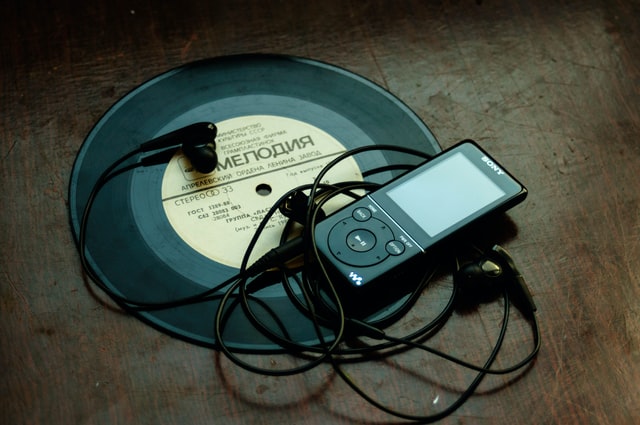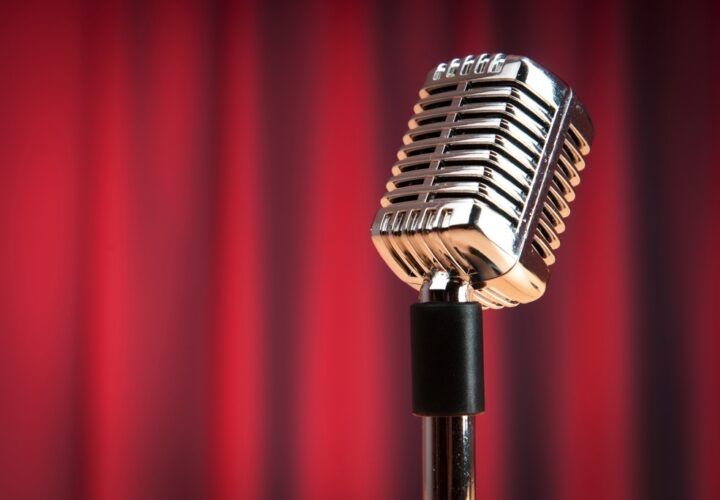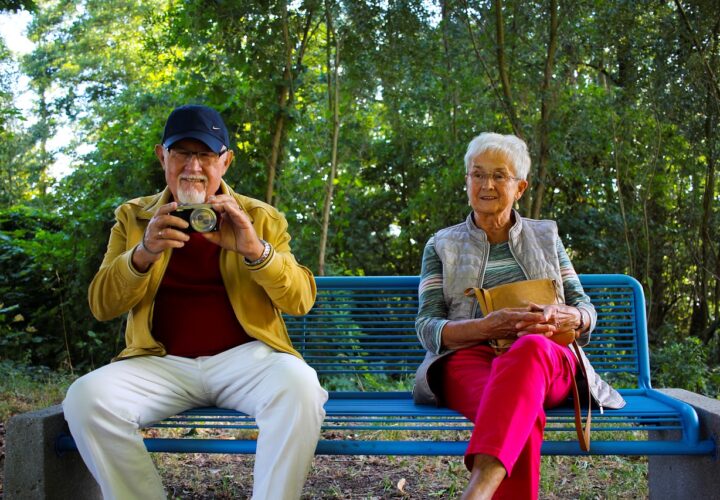Music as dementia therapy: Nonprofit Music & Memory helps caregivers make personalized music playlists to comfort people living with dementia.
During the coronavirus pandemic, residents in home care and long-term care facilities alike are experiencing immense feelings of isolation and loneliness. Isolation and loneliness aren’t good for anyone, but for those living with Alzheimer’s or other dementias, these feelings can lead to agitation and other behavioral changes that only worsen their health.
Accordingly, long-term care facilities and home caregivers are searching for all manner of ways to make the isolating requirements of the pandemic less stressful: Care communities are building plexiglass walls through which family members can visit; taking their day programming digital so people can tune in to by way of an iPad; even distributing robotic puppies that keep people company. And organizations that already worked to help people living with Alzheimer’s and dementia stay engaged are kicking their mission into high gear.
For the past 10 years, Music & Memory has worked to connect people living with a wide range of cognitive conditions with the healing power of music. The New York City-based non-profit trains professional caregivers and care facility staff to create personalized, custom music playlists and provides equipment such as iPods, MP3 players and headphones to long-term care communities. The mission: to help people with wide range of cognitive conditions “engage with the world, ease pain, and reclaim their humanity” through music.
“Music is deeply rooted in our conscious and unconscious brains,” Music & Memory Program Director Justin Russo told Being Patient. Studies have shown that music can actually awaken the brain and provide an “immediate boost” to cognitive function and to mood. And because memories linked to certain music can reappear in people living with dementia even decades later, researchers have called personally meaningful music “an alternative route for communicating with patients who have Alzheimer’s.”
“Calming music can relieve anxiety,” Russo said. “In terms of agitation and anxiety in general, music focuses a person’s attention on something recognizable, which reduces the feeling of being overwhelmed and confused.”
This is always helpful, but especially as the coronavirus pandemic forces people out of their routines and anxiety rises, something as accessible as accessible as a digital music file is indispensable — and, Russo said, it can help reduce a person’s reliance on more invasive therapies.
According to a study from the American Journal of Geriatric Psychiatry, music therapy using personalized music can relieve anxiety for people living with cognitive impairment so much so that it can to some extent help supplant the need for drug therapies and serve — as Russo puts it — as a “replacement for antipsychotics.”
It’s almost as simple as just pressing the ‘Play’ button, but not quite: In order for Music & Memory’s programs to be most effective, Russo explained there are best practices and techniques to keep in mind, and training for families and for staff at nursing homes or in long-term care communities.
“Music memory [programs] work best when there is an interdisciplinary team made up of several departments, therapists included, who all participate in this sort of way of changing the way of thinking about how to use music proactively,” he said.
In finding the right music for your loved one, the organization’s training materials recommend using genre-based playlists — such as top jazz, gospel or country music — as a jumping-off point, and in honing in on their favorite music specifically from when they were between 10 and 25 years old.
According to Psychology Today, the stage of neurological development undergone by the human brain during these adolescent years helps fuse music to memory through neural connections in the brain, and those associations will last throughout a person’s life.
Music & Memory’s best practices also advise spending at least a half hour sampling music while noting a person’s reactions. The ultimate goal: to create a playlist of 25 to 50 songs that resonate with them personally.
Music isn’t just helpful to people living with cognitive decline; it can boost the mood and reduce the anxiety of caregivers, too — and for many that relief has never been more welcome than over the past few months. In response to the pandemic, Russo said the organization is providing new caregiver members three months of free access to their training and support, as well as cutting the cost of new certifications in half in hopes of making the service more accessible to people who need it.
On their website, they are providing free genre-based playlists for to help get caregivers started.
“There’s a synergy that happens when the staff really discover the power of music and how close it starts to bring them to the residents,” Russo said. “The residents feel freer and they’re more able to communicate.”
This way, Russo said, not only can residents in long-term care facilities spend more connected and quality time with visiting family members when visits are permitted again, but they can also have more meaningful connections with the people who care for them daily.





Great articles! I have been convinced that music can be magical fir sparking memories. Meaningful music is most important. One way to tell a person’s life story using music is by making a recordable scrapbook called LifeSongs. A nice tool to promote conversations too. Purchase on Amazon.
Does anyone have a suggestion for what kind of devise to use? My Lewy Body brother can not longer operate his iphone. I tried an old but simpler MP3 player but have to pay $1/song.
Thanks!